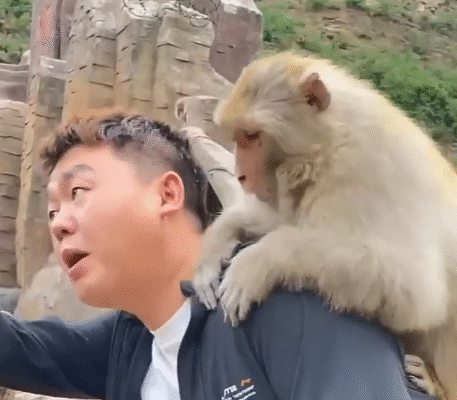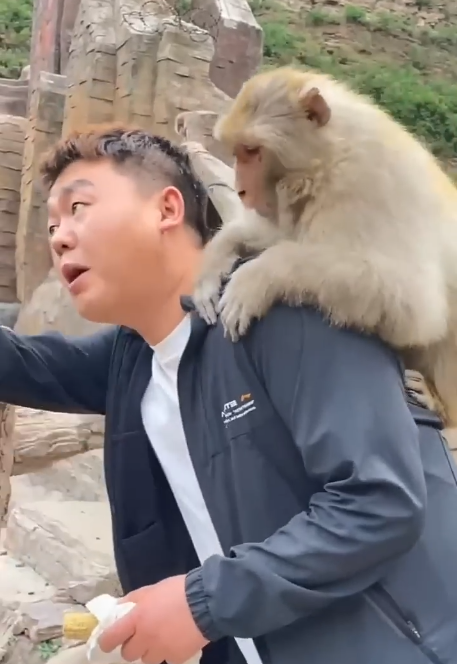
The Monkey King is one of the most legendary and fascinating figures in world mythology. He is playful, rebellious, clever, and yet deeply spiritual. Known in Chinese culture as Sun Wukong (孙悟空), the Monkey King comes from the famous 16th-century Chinese classic novel Journey to the West (Xīyóu Jì). Over hundreds of years, this character has grown from a mischievous trickster to a symbol of enlightenment, spiritual growth, and cultural pride.
But who really is the Monkey King? And why do people sometimes say, “Haha, the monkey has become a spirit”? To answer these questions, we need to explore his origins, adventures, powers, and the deeper meaning behind his transformation.
Birth of the Monkey King
The Monkey King was not born in an ordinary way. According to the legend, he sprang out of a magical stone egg on top of the Mountain of Flowers and Fruit. When the stone cracked, a monkey leapt out, full of life and energy. This was no ordinary creature—he was born with supernatural abilities.
Unlike other monkeys in the troop, this stone-born monkey was bold and fearless. He soon became the king of the monkeys by jumping through a waterfall and discovering a hidden cave, which became his kingdom. From that moment on, he was not just another monkey—he was a leader destined for greatness.
The Quest for Immortality
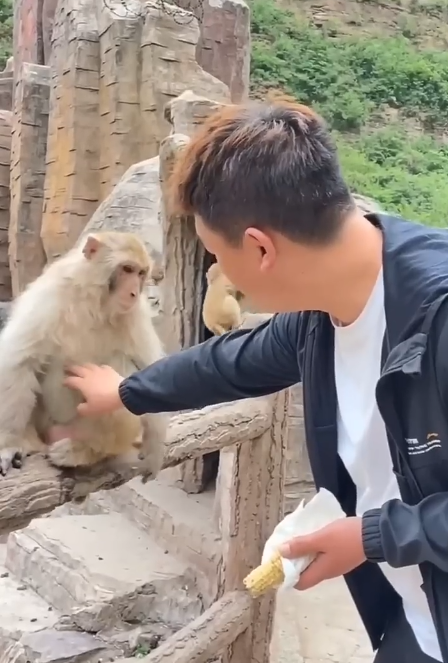
As king, the Monkey King enjoyed joy and laughter with his fellow monkeys, but he also feared death. He realized that no matter how powerful or happy he was, time would eventually end his life. So, he began a great quest for immortality.
He traveled across seas and mountains, searching for wise masters who could teach him the secrets of the universe. Eventually, he found a Taoist sage named Subhuti, who gave him a new name: Sun Wukong, which means “Awakened to Emptiness.” Under this master, he learned incredible skills:
- 72 transformations (the ability to change into animals, objects, or even giants)
- Cloud somersault (leaping across thousands of miles in a single flip)
- Magic spells and body techniques
With these powers, Sun Wukong became nearly unstoppable.
The Mischievous Trickster
But the Monkey King’s wild nature could not be contained. He caused chaos in Heaven by demanding respect from the gods. He stole the peaches of immortality, drank the Jade Emperor’s wine, and swallowed Laozi’s pills of eternal life. Each act made him more powerful, but also more arrogant.
The Jade Emperor tried to keep him calm by giving him a minor title in Heaven, but Sun Wukong realized he was being mocked. Furious, he declared himself the Great Sage, Equal to Heaven. Soon, he challenged the entire Heavenly Court.
The Battle with Heaven
Sun Wukong’s battles are some of the most dramatic episodes in Journey to the West. He fought entire armies of celestial beings and defeated many powerful generals. Even the mighty gods struggled to control him.
One of his greatest weapons was his magical staff, the Ruyi Jingu Bang. It was a giant iron pillar from the ocean that could shrink or grow at will. In battle, he wielded it with unmatched strength, destroying everything in his path.
Eventually, the gods called upon the Buddha himself to stop the Monkey King. The Buddha tricked him with a wager: if Sun Wukong could leap out of his palm, he would be free to rule. The Monkey King laughed and somersaulted to what he thought was the edge of the universe—but no matter how far he traveled, he never left the Buddha’s hand. Defeated, he was pinned under a mountain for 500 years.
Transformation into a Spirit
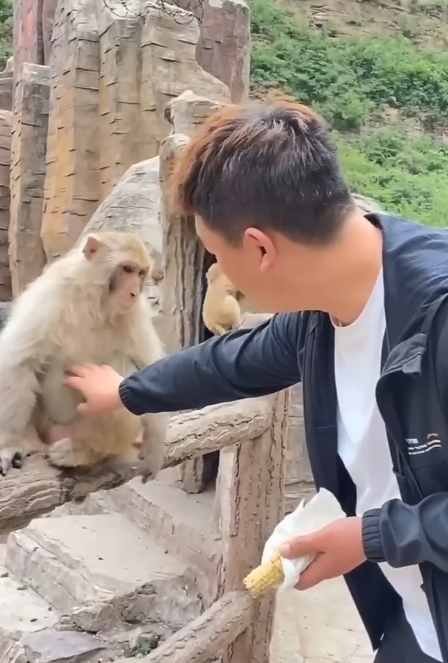
At this point in the story, we see the beginning of the Monkey King’s transformation. For centuries, he was trapped beneath the mountain, humbled and powerless. But this suffering was not the end—it was the beginning of his spiritual journey.
Later, the Buddhist monk Tang Sanzang (also known as Tripitaka) released him, on the condition that he would protect the monk on his pilgrimage to India to fetch sacred scriptures. To keep the Monkey King in check, the goddess Guanyin placed a magical headband on him. Whenever Sun Wukong disobeyed, the monk could chant a spell that tightened the band, causing him unbearable pain.
Through this, the mischievous monkey began learning discipline, compassion, and loyalty. Over time, his wild heart softened, and he transformed from a reckless rebel into a true protector. This is why people often say, “Haha, the monkey has become a spirit.” He was no longer just a troublemaker—he was awakening to wisdom.
Symbolism of the Monkey King
The Monkey King’s story is not just about magical battles and funny tricks. It carries deep meaning about human life and growth.
- Rebellion against authority: Sun Wukong’s defiance of Heaven represents the human desire for freedom and independence.
- The search for immortality: His quest reflects our fear of death and our search for something eternal.
- Transformation through discipline: Though strong and clever, he needed guidance and control. His spiritual journey shows that power alone is not enough; wisdom is the key.
- The playful spirit: Despite his troubles, Sun Wukong always had humor, laughter, and joy. His spirit reminds us not to lose playfulness even in serious journeys.
The Monkey King in Modern Culture
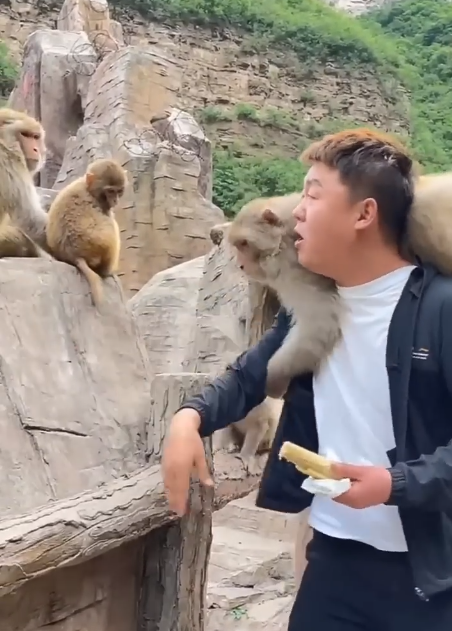
Today, the Monkey King is one of the most popular mythological characters in the world. His adventures have inspired countless movies, TV shows, comics, and games. From Chinese operas to Hollywood films, from anime to video games, Sun Wukong’s story continues to live on.
In China, he is seen as a cultural hero. In the West, many people compare him to superheroes like Spider-Man or Iron Man—clever, rebellious, but ultimately good-hearted. He has even appeared in modern fantasy series and inspired characters in Dragon Ball, Naruto, and other famous anime.
Why “Haha, the Monkey Has Become a Spirit”?
The phrase reflects the humor and wonder of his transformation. Imagine a mischievous monkey who once caused chaos in Heaven, now chanting sutras, protecting his master, and helping others. It’s almost funny, but also inspiring.
It shows that no matter how wild, playful, or rebellious we are, we too can transform. Like Sun Wukong, humans struggle with pride, anger, and mistakes—but with guidance, patience, and wisdom, we can awaken to our higher selves. The Monkey King reminds us that the spirit of play can grow into the spirit of enlightenment.
Conclusion
So, who is the Monkey King? He is Sun Wukong, born from stone, master of transformations, wielder of the magical staff, rebel against Heaven, protector of pilgrims, and finally, a symbol of spiritual awakening.
From mischievous monkey to enlightened spirit, his journey is one of the greatest tales in world literature. His story teaches us courage, humor, rebellion, and discipline. And perhaps the biggest lesson is this: even the wildest monkey can become a wise spirit.
Haha! Truly, the monkey has become a spirit.
